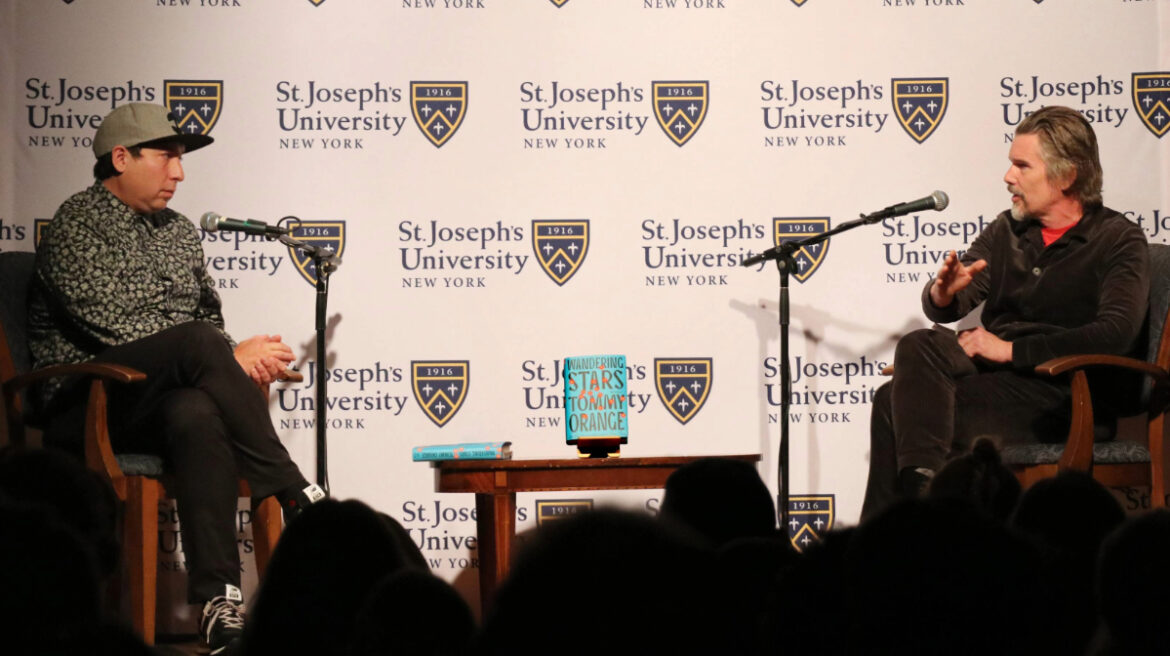What happens when two award-winning individuals come together?
At least, that’s what happened Tuesday, March 5, when bestselling author Tommy Orange and “Dead Poet’s Society” actor Ethan Hawke spoke at St. Joseph’s University, New York.
The Brooklyn Voices event, held in collaboration with Greenlight Bookstore, brought the pair together, with Orange discussing his newest novel, “Wandering Stars.”
“There’s an undeniable audience who is there to see this spectacle of the sophomore effort,” Orange said of his follow-up to his award-winning debut novel, “There There.”
“If you fail or succeed, it’s interesting. There’s the feeling that critics are waiting in the wings for what might seem to be ‘a flail or a dance,’ the Pulitzer Prize-finalist said. “I think this was more hard-earned by the end of it.”
Finding the Story in ‘Wandering Stars’
Orange, an enrolled member of the Cheyenne and Arapaho Tribes of Oklahoma, found the inspiration for his latest novel from a mix of sources — a family story, history and bizarre connection that kept drawing him back to stars.
“I realized I was going to try to write this thing that creates a family line that starts at Sand Creek, which I’d already started writing, but goes to the (Fort Marion) prison castle and eventually lands us in the aftermath of ‘There There.’
A three-generational novel, “Wandering Stars” traces the horrific impacts of the Sand Creek Massacre of 1864, which saw roughly 230 Cheyenne and Arapaho people murdered; and the Carlisle Indian Industrial School, the first government-run boarding school for Native American children, where students were forced to assimilate into white American society and at which 186 students died.
“Sometimes with native stories and marginalized stories, it could feel like mainstream people are doing marginalized people a favor or expressing their ‘wokeness’ by spending their time with the stories,” Orange said when Hawke asked him if, as a native writer, Orange feels he has to be a “native” writer. “Native stories are such a vital part of American history.
“You’re not doing anybody any favors by hearing this part that … makes us look less good as a country,” he continued. “We all sort of know, but willfully, continually ignore this very dark and, I think, vital part of American history that, if we could face it and include it, would change us for the better.”

